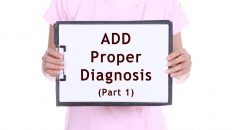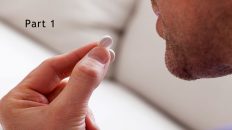By Jerry Morris, PsyD, MsPharm, MBA
MB (Marc Braman, MD, MPH):
Excellent, so there’s huge factors in terms of relationships, and the environment the child is growing up in, adverse events, et cetera. Let’s just touch briefly on other key aspects of lifestyle. Does sleep have any causative role and/or treatment role with ADD?
JM (Jerry Morris, PsyD, MsPharm, MBA):
Definitely, there are those who are quite well educated and bright that thinks that sleep is one of the causative and maintaining factors in a lot of these serious emotional disorders like ADHD, and the other mood disorders. Now, so, for instance, let’s look at the five stages of sleep and let’s focus on stage four that we rotate through several times a night, and they all have a particular adaptive function on the brain, on the the endocrine system, and on the personality and the mind that we articulate through relationships. For instance, in stage four sleep, or rapid eye movement, or dream sleep, that’s the stage where several times a night we literally reset the microvolts with our own natural shock therapy in these neural connections in the brain. Without that, we awaken the next day with poor attention, poor memory, increased emotionality, increased irritability and inability to focus. All of those signs and symptoms, which some people identify with Attention Deficit and other mood disorders.
JM:
So, that stage four sleep, if interrupted by lots of stressors and negative adaptive components to the lifestyle in the day, the poor little pineal gland and it’s little, weak melatonin can’t override that, and then the five stages of sleep don’t occur well, and we don’t reset the microvolts. Stage five sleep is essential too, that’s our slow wave component of each sleep cycle. That’s the only part of the sleep cycle that we get any real rest and recovery. And so we wake the next day irritable because we are fatigued, having trouble with memory, encoding and attention because we are fatigued and we are unrested even if we slept all night; if those stages are interfered with by extensive endocrine upheavals that can’t be quieted over the night.
MB:
So sleep is a big deal. I know one of our mutual friends and national experts, informed me years ago as to the scientific evidence on sleep and ADD. And his telling me that he thought based on the evidence, that probably in the majority of ADD may be caused by sleep disorders was big news to me. I’d never been taught that at medical school.
JM:
Right. And in fact it just makes perfect rational sense. A lot of times, I am teaching families that I am bonded with and who trust me and we have a good working relationship that if I was in their family, I would sleep with one eye open with all the stress going on. So that’s kind of my way of putting it without going into the pineal gland and the endocrine system.
MB:
Well, and we have touched on stress as a huge factor, adverse childhood events, relationships. Stress is obviously huge and there are things we can do to deal with that, both for the individual and for their relationships, their family, and their environment. What about nutrition? Is there any evidence for a role of nutrition?
Relationship of Childhood Abuse and Household Dysfunction to Many of the Leading Causes of Death in Adults: The Adverse Childhood Experiences (ACE) Study. Felitti VJ, Anda RF, Nordenberg D, Williamson D, Spitz A, Edwards V, Koss MP, Marks JS (1998). American journal of Preventive Medicine. Vol. 14, Issue 4, p. 245-258.
Exercising Your Brain: A Review of Human Brain Plasticity and Training-Induced Learning. Green, C. S., & Bravelier, D. (2008). Psychology and Aging. Vol. 23, No. 4, 692-701.
Dynamic Remodeling of Dendritic Arbors in GABAergic Interneurons of Adult Visual Cortex. Wei-Chung Allen Lee, Hayden Huang, Guoping Feng, Joshua R. Sanes, Emery N. Brown, Peter T. So, Elly Nedivi (2006). PLos Biol. Volume 4, Issue 2, e29. doi: 10.1371/journal,pbio.0040029.





